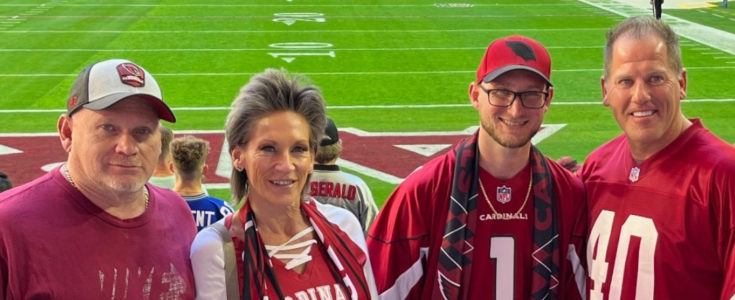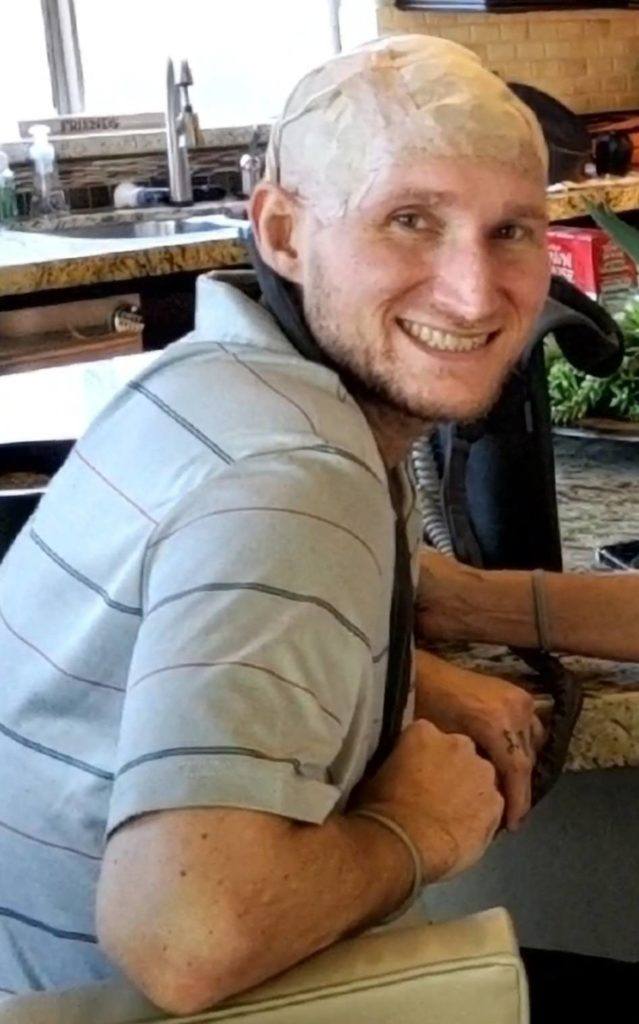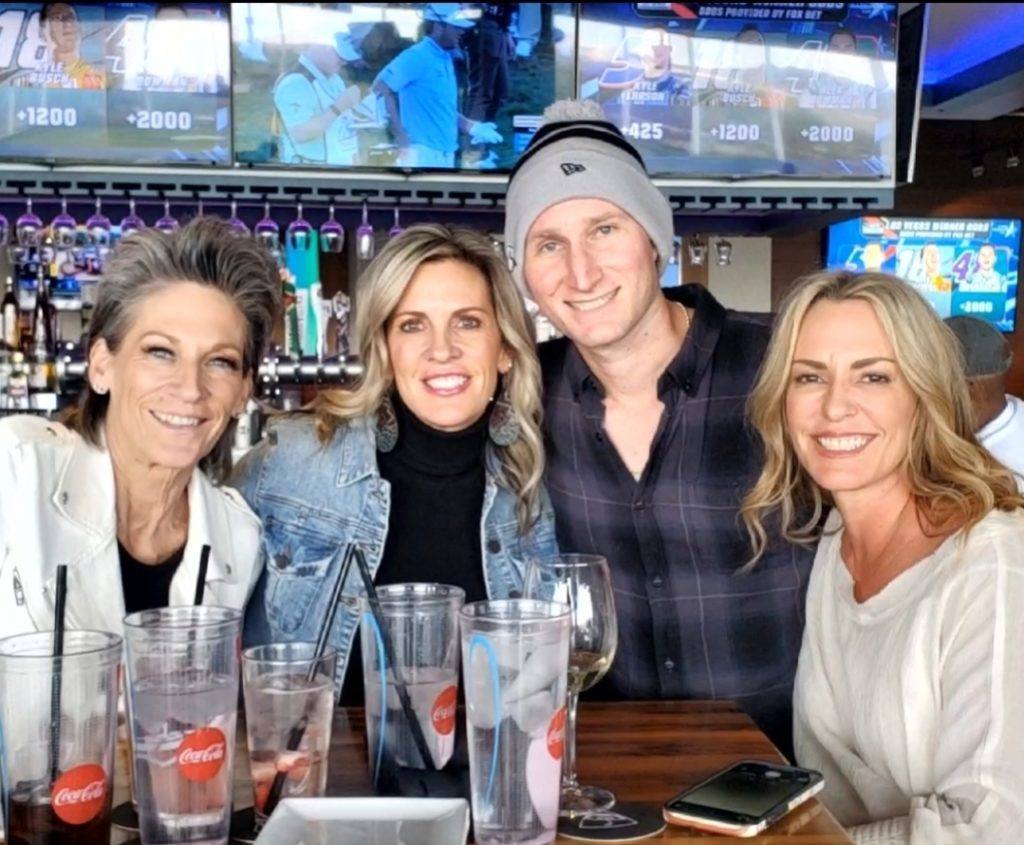
Ivy Blog
Glioblastoma Patient Defying the Odds Three Years After Diagnosis
- October 6, 2022
- Ivy Center
- Posted in Patient Stories

Living with a deadly, cancerous brain tumor is not easy. There’s often surgery, chemotherapy and radiation, and the side effects that come with all of it. But that’s not the hardest part.
For Dalton Riddle, the most difficult part of living with glioblastoma is befriending other newly diagnosed patients, hearing their stories, telling his own, offering them encouragement and then they pass away.
“It breaks my heart,” he says.
Today Dalton is defying the odds. He’s about to celebrate living three years with glioblastoma. For most, the average life expectancy after diagnosis is 12-15 months.
Getting the GBM Diagnosis
He was diagnosed with brain cancer on December 11, 2019. He was working with his family, remodeling their steakhouse in Wyoming. Dalton planned to take over the business and run operations for the family.
He began experiencing terrible headaches, unlike any he’d had before, and they consistently worsened. One day at home, he announced to his father that he was going to the bathroom but headed for the laundry room instead. He got lost; he couldn’t remember where the restroom was in his own home. After losing consciousness that same day, his father insisted on an emergency room visit.

A CT scan found a fist-sized mass on his right frontal temporal lobe. He was rushed to Billings, Montana for surgery, where a doctor gave him a grim diagnosis – glioblastoma multiforme – or, as Dalton put it, “death’s doorstep.”
Glioblastoma is the most common and aggressive type of malignant brain tumor and affects more than 13,000 Americans every year. The median survival time is 15 months.
Dalton’s life and his future were completely changed from that point forward.
“It was a punch to the gut. My breath was taken out of me,” he says.
The surgeon in Montana removed only 40 percent of the tumor and suggested radiation and chemotherapy as their best option. Dalton and his family felt lost.
Turning to the Ivy Center for GBM Treatment
A family friend in Arizona suggested they come down and visit the Ivy Brain Tumor Center and talk to Dr. Nader Sanai, Director of the Ivy Center and Director of Neurosurgical Oncology at Barrow Neurological Institute.
“There aren’t many options for treatment, and we didn’t know where to go until we found out about the Ivy Center,” Dalton says. “It was beyond luck.”
A month later Dalton was back in surgery, where Dr. Sanai removed the remainder of the tumor. He began radiation and chemotherapy and enrolled in an Ivy Center Phase 0 clinical trial investigating a PARP inhibitor called pamiparib.
The Ivy Center is home to the largest Phase 0 clinical trials program in the world and the first of its kind in neuro-oncology. The program trials new drug and device combinations matched to individual patients, allowing quick course adjustments to find the most effective treatments.
In January 2022, Dalton had a grand mal seizure, due to a tumor recurrence. The tumor had grown back, this time in seven different spots. On March 9, his 31st birthday, he had another surgery to remove the tumor, and began another round of intense radiation and chemo.
He expected this recurrence. Glioblastoma never goes into remission, he says. Additional surgeries and treatments are expected, “like an oil change,” Dalton says. Recurrences are common in up to 70 percent of glioblastoma patients.
Becoming an Ambassador for Brain Center Treatment

But Dalton is not giving up; his competitive nature won’t allow it. Instead, he’s living his life well. The only visible signs of brain cancer are his “awesome” surgery scar, he says, and the Optune device he wears.
“The device is killing cancer cells, like roundup,” he says with a laugh.
Optune is a wearable, portable, FDA-approved device that sends electric Tumor Treating Fields (TTFields) to tumor tissue to disrupt cancer cell division and growth.
Bystanders often ask questions about it, and Dalton happily answers. He sees it as an opportunity to tell people about brain cancer, especially glioblastoma, and raise awareness to hopefully lead to a cure.
Dalton, who has permanently relocated to Arizona for treatment, connects with other glioblastoma patients at support groups and online. He offers advice and support and always encourages them to come to the Ivy Center for treatment in a Phase 0 clinical trial. His family even offers hotel rooms and transportation to help other families get there.
There are many questions that come along with a new brain cancer diagnosis. Dalton tells his new friends to take a step back and breathe. There is hope.

This story is for general health information only and is not meant to be used as medical advice, diagnosis or treatment. Please consult your physician or healthcare provider before beginning any treatment protocol or with any questions. This story reflects the health status of this particular patient at the time the story was written and photographs were taken. The patient’s condition may have changed over time.
